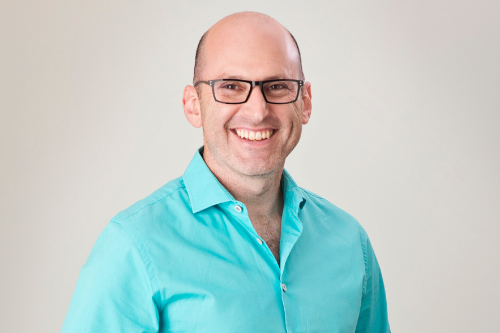

“I don’t think that computers or robots are here to take over the world.”
Those were the words of Mark Cohen (pictured) when Insurance Business sat down with the Wilbur chief executive ahead of the 2021 Insurance Business Australia Awards, an event in which the technology brand is putting its weight behind the underwriting agency claims team of the year recognition.
In Cohen’s view, technology adoption won’t mean the loss of jobs for people. In the world of insurance claims, in particular, tech won’t be replacing the claims handler. Instead, according to the CEO, it will massively amplify what the claims handler can accomplish.
Cohen asserted: “The future of claims is going to be straight-through processing that is fully automated, with decisions that are made by machines wherever possible and humans only getting involved when you hit an edge case where it’s not very clear that this is the way it should go.
“That’s where it gets to be a game-changer, when you can have a claims handler who – instead of handling, say, 50, 60 claims at a time – can be handling 600 because 90% of them are just going to match rules or AI (artificial intelligence) will be able to make decisions for you.”
The claims tech boss went on to stress that AI is not some sort of crazy science fiction. “It’s just machine learning based on prior data,” clarified Cohen, who is in charge of leading Claim Central Consolidated’s rebranded global technology business and platforms.
It’s this very same trove of information that the CEO believes will offer a host of opportunities when in comes to insurance claims handling, which Cohen pointed out is the largest point of turn for most insurers. The goal, he added, is to minimise claims costs and duration while ensuring customer satisfaction.
“You’ll hear a lot of people talking about the value of the data that we’re collecting as an industry,” he noted. “And what we can do with that data is where it’s starting to get more and more interesting. We can start using vision AI, so we can analyse photos and videos and do everything from identifying damage that needs repair, all the way through to fraud detection.”
“AI can also be used to do things like sentiment analysis where we receive a phone call and are getting a transcript of that call and attaching it to a claim,” continued Cohen. “What we can do is run it through sentiment analysis and say this customer is stressed or this customer is angry. So, you can score the sentiment and then you can preemptively escalate a claim before someone has even created a complaint.
“It’s got a lot of value to businesses to start using data in that sense. Then the other thing which gets really interesting – and I’m very excited about where we can take this – is what you can do potentially with aggregate data. You can start analysing trends across claims more generally. You can start looking at combining weather data with the trends in claims related to water mitigation, for example.”
The chief executive emphasized, though, the need to treat data not just responsibly but also conservatively. Aside from using the information safely and securely, Cohen said it’s also important to use as little personal data as is justifiable.
He told Insurance Business: “Don’t just be responsible [with] data but use as little as possible for the best return on investment. If a customer or a policyholder is actually recognising value for the data being used, they’re much less likely to be upset than if you’re using the data and there’s no return on that for them and they feel like you’ve violated their trust.
“Our data is generally the property of our customers, not [ours]. And so we can’t do anything with that data without permission, and that’s the way it should be.”
Meanwhile, as evidenced the world over, the pandemic has pushed industries, including insurance, to embrace technology a little tighter than they previously would.
“In Australia,” quipped Cohen, “we probably got 10 to 15 years of technology adoption in the last year, driven by necessity. We work in an industry that is widely regarded as slower to adopt [tech], but the choice was essentially stripped off.
“When COVID hit and the first lockdown came, everyone was scrambling to try and figure out how their staff were going to work from home, and the people who had the biggest issues were the ones who were running legacy systems.”
In Wilbur’s case, among the things the business benefited from were its cloud-based claim system and its remote claims inspection technology Livegenic. The latter, said Cohen, proved “very useful” during lockdown.
As for apprehensions surrounding the ‘rise of the machines’, the Wilbur leader had this to say: “We have entire teams working on data, which was not a thing 10 years ago. AI, even probably five years ago was not a mainstream thing to be doing. So, new jobs will emerge all the time.
“I’m optimistic. I don’t think that computers or robots are here to take over the world. I think our kids will get jobs that didn’t exist when we grew up. So, the net is more opportunities, not less.”
This year’s Insurance Business Australia Awards will take place virtually on November 12. The event will feature the exclusive stream of the awards presentation, as well as online networking opportunities such as peer matching and a live chat. You can register here.
